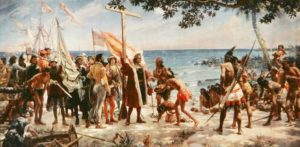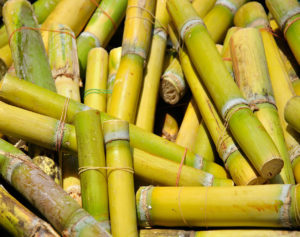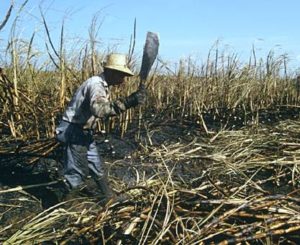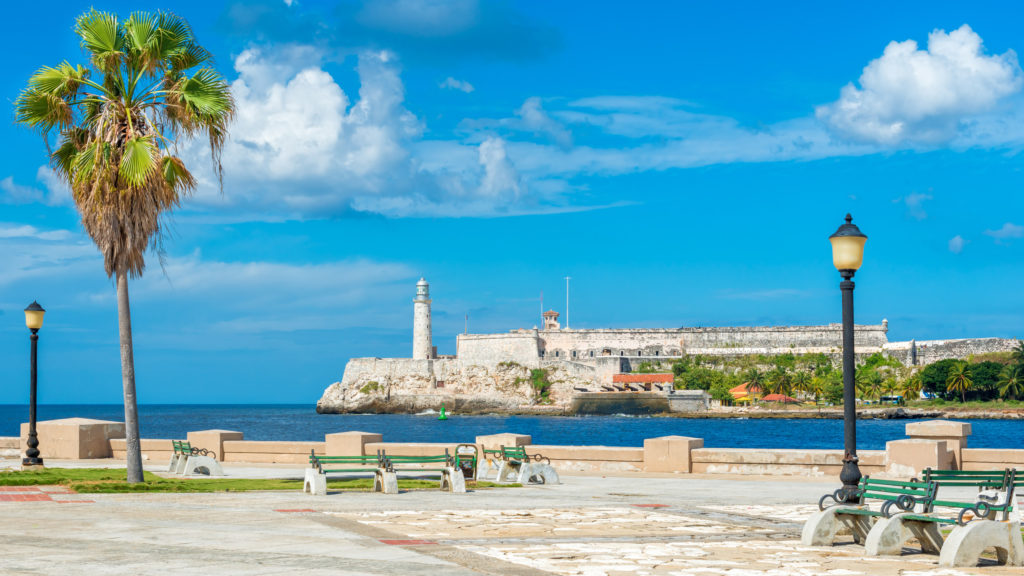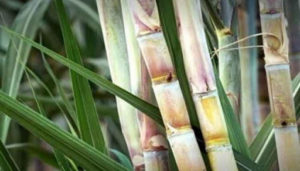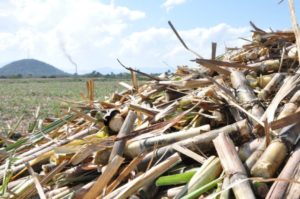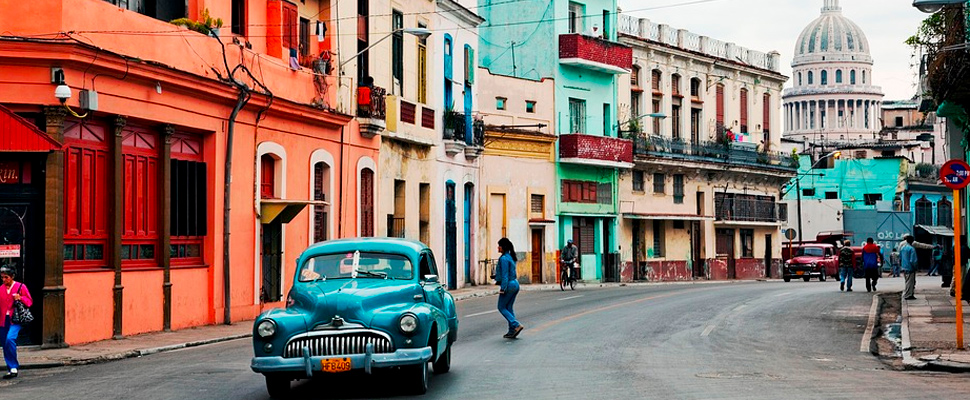HISTORIA DEL AZUCAR COMO PRODUCTO DE INFLUENCIA EN NUESTRA NACIONALIDAD.
Puede sorprendernos el conocer, segun investigadores e historiadores, que el azucar propició el viaje del Almirante Cristobal Colon a esta parte del mundo, a nuestra America.
En su cuarto y último viaje, realizado entre 1502 y 1504, Colón introdujo la caña de azúcar en la isla de La Española, procedente de las Islas Canarias un gran productor de azucar en aquellos tiempos.
Una investigación histórica realizada por el Ing. Caballero Núñez, director general del Instituto Cubano de Investigaciones de los Derivados de la Caña de Azúcar, reveló que el suegro de Colón fabricaba azúcar en las Islas Madeira y el futuro Gran Almirante de la Mar Oceánica comandaba por entonces una embarcación en la cual transportaba azúcar, y en un viaje a Inglaterra, luego le cargaron el barco con mercancías para Islandia.
Fue allí donde conoció de los viajes de los vikingos y confirmó que el planeta es redondo y que se puede encontrar otras tierras navegando hacia el oeste. Desde entonces, no descansó en su empeño de realizar la hazaña que lo trajo a América.
EL AZUCAR COMO INFLUENCIA EN NUESTRA NACIONALIDAD.
La ventajoza posición de productora de azucar en Santo Domingo duro hasta finales del siglo XVIII, cuando la Revolución de Haití hizo que sus fabricantes huyeran hacia el mayor archipiélago de Las Antillas y dieran a la isla cubana el liderazgo e impulso de la industria alli.
Estos sucesos condujeron al principalísimo papel que ha tenido, y aun tiene, el azúcar en la economía y la nacionalidad cubana.
El Dr. Miguel Barnet Lanza, insigne poeta, narrador, ensayista y etnólogo, afirma que “no se puede hablar del azúcar sin hablar de la cultura; están indisolublemente ligadas.
“En el sistema intensivo de plantación se generó casi todo lo importante de las raíces de la cultura popular cubana, alrededor de la chimenea, de la campana del ingenio, del barracón…”
Precisa Barnet, que las grandes oleadas de esclavos, procedentes del golfo de Guinea, sobre todo del suroeste de Nigeria, trajeron la cultura Lucumí o Yorubá, como la llaman ahora algunos antropólogos, la cual generó muchas de las tradiciones con las cuales convivimos, y configuró lo que se llama santería o Regla de Ocha.
“Pero antes —completa el insigne etnólogo—, habían llegado también las culturas bantú, de las márgenes del río Congo, desde el siglo XVII y, por supuesto, siguieron llegando hasta el XIX, quiere decir que todo lo que es importante en la espiritualidad, en el imaginario del cubano, surge a partir del desarrollo de la industria básica de nuestro país, que es la industria azucarera”.
Ahora, que el país inició una nueva zafra, en cuyos resultados productivos y económicos se sustentan la garantía del consumo interno y la exportación de azúcar y sus derivados, vale recordar que, también, la nacionalidad cubana es fruto de esa industria.
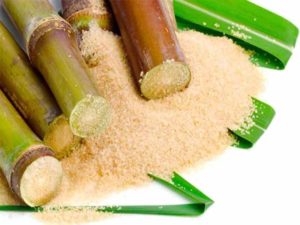 THE SUGAR HISTORY AS PRODUCT OF INFLUENCE IN OUR NATIONALITY.
THE SUGAR HISTORY AS PRODUCT OF INFLUENCE IN OUR NATIONALITY.
It may surprise us to know, according to researchers and historians, that sugar caused the trip of Admiral Cristobal Colon to this part of the world, to our America.
In his fourth and last trip, made between 1502 and 1504, Colón introduced sugar cane to the island of Hispaniola, a major sugar producer from the Canary Islands at that time.
A historical investigation carried out by Eng. Caballero Núñez, general director of the Cuban Institute of Investigations of Sugar Cane Derivatives, revealed that Columbus’s father-in-law manufactured sugar in the Madeira Islands and the future Grand Admiral of the Oceanic Sea commanded by Then a ship carrying sugar, and on a trip to England, then loaded the ship with merchandise for Iceland.
It was there that he learned of the Vikings’ travels and confirmed that the planet is round and that other lands can be found sailing west. Since then, he did not rest in his efforts to carry out the feat that brought him to America.
SUGAR AS AN INFLUENCE ON OUR NATIONALITY.
The advantageous position of sugar producer in Santo Domingo lasted until the end of the 18th century when the Haitian Revolution made its manufacturers flee to the largest archipelago of the Antilles and gave the Cuban island the leadership and impulse of the industry there.
These events led to the main role that sugar has had, and still has, in the Cuban economy and nationality.
Dr. Miguel Barnet Lanza, a distinguished poet, narrator, essayist, and ethnologist, affirms that “you cannot speak of sugar without speaking of culture; they are inextricably linked.
“In the intensive plantation system, almost everything important from the roots of Cuban popular culture was generated, around the chimney, the sugar mill bell, the barracks …”
Barnet points out that the great waves of slaves, coming from the Gulf of Guinea, especially from southwest Nigeria, brought the Lucumí or Yorubá culture, as some anthropologists now call it, which generated many of the traditions with which we live, and configured what is called Santeria or Ocha Rule.
“But before,” completes the distinguished ethnologist, “the Bantu cultures had also arrived from the banks of the Congo River since the 17th century and, of course, they continued to come until the 19th century, which means that everything that is important in spirituality, in the Cuban imagination, arises from the development of the basic industry of our country, which is the sugar industry. ”
Now that the country has started a new harvest, whose productive and economic results are supported by the guarantee of internal consumption and the export of sugar and its derivatives, it is worth remembering that Cuban nationality is also the result of that industry.
Agencies/ Radio Encyclop./ Eduardo Gonzalez/ Internet Photos/ Arnoldo Varona/ www.TheCubanHistory.com
THE CUBAN HISTORY, HOLLYWOOD.





